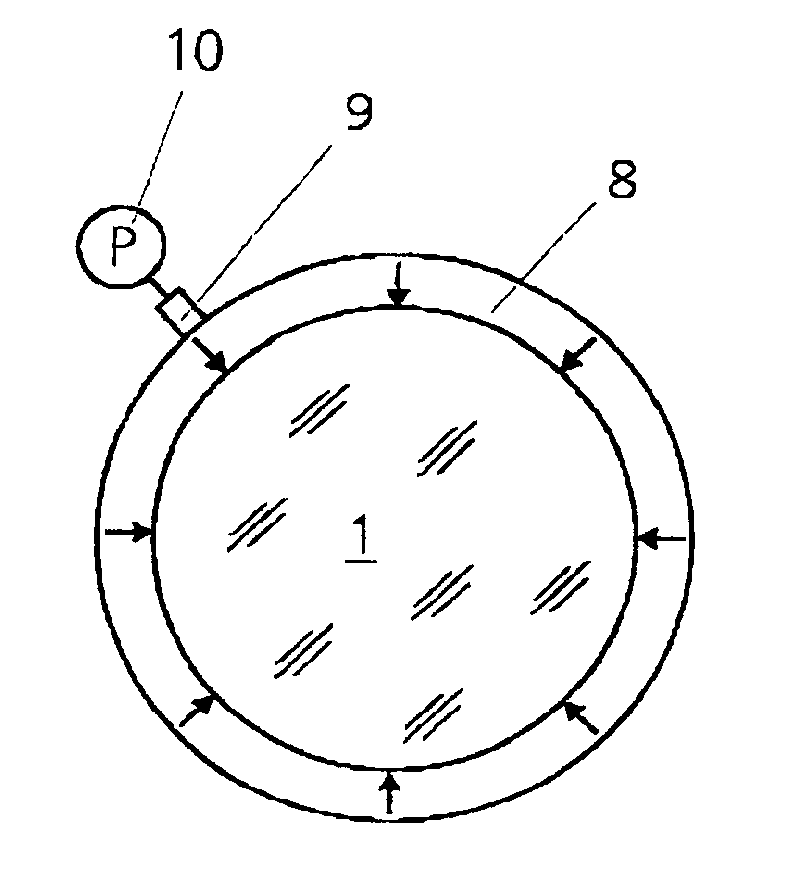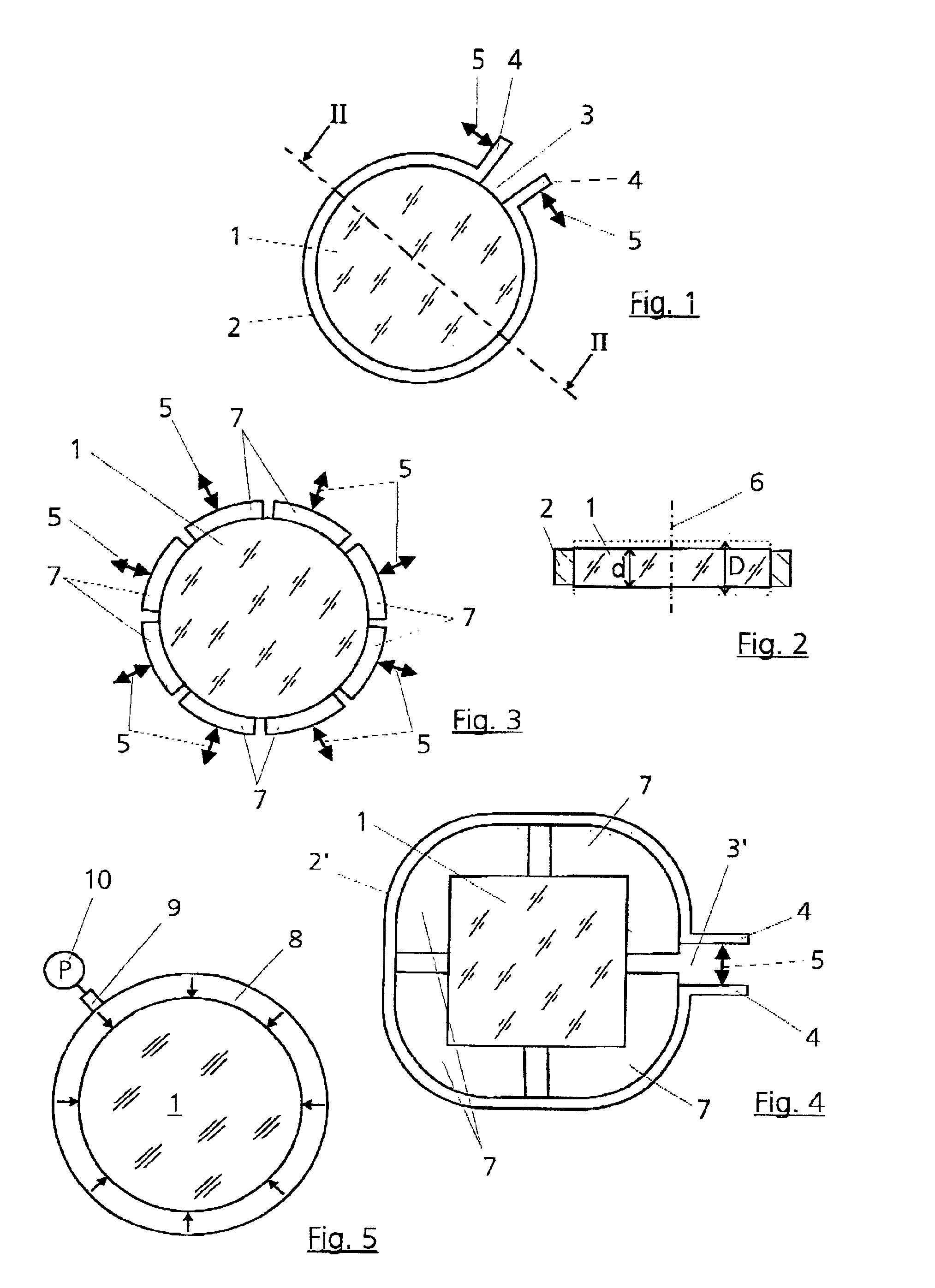Device and method for changing the stress-induced birefringence and/or the thickness of an optical component
a technology of stress-induced birefringence and optical component, which is applied in the direction of microlithography exposure apparatus, instruments, polarising elements, etc., can solve the problems of comparatively complicated arrangement, and achieve the effect of low space requirement and simple design
- Summary
- Abstract
- Description
- Claims
- Application Information
AI Technical Summary
Benefits of technology
Problems solved by technology
Method used
Image
Examples
Embodiment Construction
[0028]FIG. 1 shows an optical component 1 that is gripped by a clamping element 2 that is designed here as an open clamping ring 2. The clamping ring 2 has an opening 3 in its circumference such that the portion of the circumference of the optical component 1 gripped by the clamping ring 2 is smaller than 0.2 times the total circumference of the optical component 1. Fitted in the region of this opening 3 are two lugs 4 on which at least one actuator 5, indicated here by two double arrows 5, acts.
[0029]Ideally, in the case of a real structure, there is arranged in the region of the opening 3 an actuator 5 that moves the two lugs 4 of the clamping element in such a way that the size of the opening 3, and thus the portion of the circumference of the optical component 1 gripped by the clamping ring 2, can be changed by the actuator 5. All current forms of actuators 5 can be used as actuators 5 for such a design, and these would include pneumatic or hydraulic force elements, spindle / moto...
PUM
 Login to View More
Login to View More Abstract
Description
Claims
Application Information
 Login to View More
Login to View More - R&D
- Intellectual Property
- Life Sciences
- Materials
- Tech Scout
- Unparalleled Data Quality
- Higher Quality Content
- 60% Fewer Hallucinations
Browse by: Latest US Patents, China's latest patents, Technical Efficacy Thesaurus, Application Domain, Technology Topic, Popular Technical Reports.
© 2025 PatSnap. All rights reserved.Legal|Privacy policy|Modern Slavery Act Transparency Statement|Sitemap|About US| Contact US: help@patsnap.com


